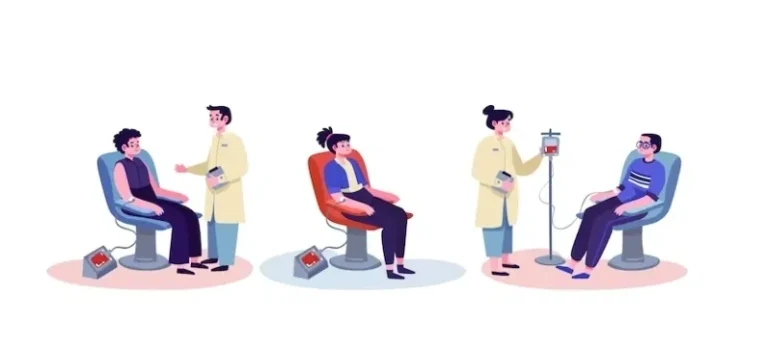Introduction:
In today’s fast-paced world, access to reliable and efficient transportation is crucial, especially when it comes to medical appointments. Non-emergency transportation services play a vital role in ensuring that individuals can attend their doctor’s appointments conveniently and without any added stress. In this blog post, we will explore the significance of non-emergency transportation for doctor’s appointments and how it positively impacts patient care.
Overcoming Transportation Barriers
Limited Mobility and Disabilities:
For individuals with limited mobility or disabilities, transportation can be a significant challenge. Traditional modes of transportation may not be accessible or accommodating to their specific needs. Non-emergency transportation services address this barrier by providing wheelchair-accessible vehicles and specialized assistance. These services ensure that individuals with limited mobility or disabilities can access transportation that caters to their unique requirements, enabling them to reach their doctor’s appointments with ease.
Lack of Access to Private Vehicles
Not everyone has access to private vehicles, which can create barriers to attending doctor’s appointments. Public transportation may not always be convenient or feasible, and relying on friends or family for rides may not be sustainable. Non-emergency transportation services fill this gap by offering reliable transportation options tailored for medical appointments. Patients can rely on these services to ensure they have a consistent and dependable means of transportation to and from their doctor’s appointments.
Tailored Transportation Solutions
Non-emergency transportation services provide tailored solutions to meet the diverse needs of patients. They understand that different individuals require different levels of assistance, such as specialized medical transportation for patients with specific medical conditions. These services work closely with healthcare providers to ensure that transportation arrangements align with patients’ medical requirements, making it easier for them to attend their doctor’s appointments comfortably and safely.
Timely Access to Care:
Preventing Missed or Delayed Appointments
One of the primary benefits of non-emergency transportation services is the prevention of missed or delayed appointments. These services operate on scheduled pick-up and drop-off times, ensuring that patients arrive at their appointments promptly. By eliminating the reliance on uncertain transportation options, such as public transportation or arranging rides, non-emergency transportation services reduce the risk of appointments being missed or delayed due to transportation issues.
Scheduled Transportation Services
Non-emergency transportation services offer scheduled transportation services, which means that patients can plan their appointments with confidence, knowing that transportation will be available at the designated times. This scheduled approach ensures that patients can attend their appointments without the stress of figuring out transportation logistics on their own. It provides peace of mind and allows individuals to focus on their health and well-being.
Facilitating Ongoing Treatment and Preventive Care
Non-emergency transportation services play a vital role in facilitating ongoing treatment and preventive care. Regular follow-up appointments are crucial for managing chronic conditions, monitoring treatment progress, and preventing potential health complications. These services ensure that patients can attend their follow-up appointments consistently, enabling healthcare providers to monitor their progress, make necessary adjustments to treatment plans, and address any emerging health concerns in a timely manner.
Reduced Stress and Anxiety:
The Impact of Transportation on Patient Well-being
Transportation-related stress and anxiety can significantly impact a patient’s well-being, particularly when it comes to medical appointments. Navigating unfamiliar routes, dealing with traffic congestion, and the uncertainty of finding parking spaces can add unnecessary stress to an already challenging situation. Non-emergency transportation services alleviate these stressors by providing a reliable and stress-free transportation experience. Patients can rest assured that transportation logistics are taken care of, allowing them to focus on their health and well-being.
Convenience and Peace of Mind
Non-emergency transportation services offer convenience and peace of mind to patients. The knowledge that transportation will be available at the scheduled time, without the need for additional arrangements or coordination, allows patients to relax and approach their doctor’s appointments with a sense of ease. They can avoid the stress of navigating through traffic or worrying about finding parking, knowing that professional drivers will handle these aspects on their behalf. This convenience not only saves time but also contributes to a more positive and relaxed patient experience.
Alleviating Transportation-Related Stressors
Transportation-related stressors can have a significant impact on a patient’s overall well-being. For individuals with medical conditions or chronic illnesses, the stress and anxiety associated with transportation can be detrimental to their health. Non-emergency transportation services alleviate these stressors by providing a reliable and comfortable transportation experience. Trained drivers who are familiar with patient care and special assistance requirements can offer support and reassurance throughout the journey, making the transportation process smoother and less burdensome.
Enhanced Safety and Comfort
Trained Drivers and Specialized Assistance
Non-emergency transportation services prioritize the safety and well-being of their patients. They employ trained drivers who are knowledgeable about patient care and understand how to assist individuals with specific medical needs. Whether it’s providing assistance with mobility devices or ensuring proper positioning and comfort during the ride, these drivers are equipped to handle the unique requirements of each patient. This specialized assistance ensures that patients feel secure and supported throughout their transportation experience.
Safety Features in Transportation Vehicles
Non-emergency transportation services prioritize the safety of their passengers by equipping their vehicles with necessary safety features. From proper wheelchair securing systems to seat belts and airbags, these vehicles are designed to provide a safe transportation environment. This focus on safety helps to mitigate any potential risks during the journey, giving patients peace of mind knowing that their well-being is a top priority.
Maintaining Clean and Hygienic Environments
Especially in the current healthcare landscape, maintaining a clean and hygienic transportation environment is essential. Non-emergency transportation services adhere to rigorous sanitation standards to ensure the safety of their passengers. Regular cleaning and disinfection protocols are followed, reducing the risk of potential infections or exposure to harmful pathogens. By maintaining clean and hygienic environments, these services provide an added layer of safety and comfort for patients during their transportation to and from doctor’s appointments.
Improved Health Outcomes:
Disease Management and Treatment Adherence
Regular attendance of doctor’s appointments is crucial for effective disease management and treatment adherence. Non-emergency transportation services play a pivotal role in supporting patients’ commitment to their healthcare by ensuring timely and consistent access to medical care. By helping patients attend their appointments as scheduled, these services contribute to better disease management, treatment compliance, and overall health outcomes.
Preventive Interventions and Early Detection
Preventive care and early detection of health issues are vital for maintaining optimal health. Non-emergency transportation services enable patients to receive timely preventive interventions such as screenings, vaccinations, and routine check-ups. By facilitating regular visits to healthcare providers, these services enhance the chances of early detection and intervention, enabling prompt treatment and potentially preventing the progression of certain conditions.
Supporting Overall Well-being
Non-emergency transportation services play a significant role in supporting the overall well-being of patients. By providing accessible and reliable transportation to doctor’s appointments, these services promote a proactive approach to healthcare. Patients can prioritize their health needs, receive necessary medical attention, and engage in preventive care measures that contribute to their overall well-being and quality of life.
Conclusion
Non-emergency transportation services offer invaluable support in overcoming transportation barriers, ensuring timely access to care, reducing stress and anxiety, enhancing safety and comfort, and improving health outcomes for individuals attending doctor’s appointments. By providing tailored transportation solutions, these services address the specific needs of patients with limited mobility or disabilities, as well as those lacking access to private vehicles. Scheduled transportation services prevent missed or delayed appointments, facilitating ongoing treatment and preventive care. Moreover, these services reduce stress and anxiety by providing convenience, and peace of mind, and alleviating transportation-related burdens.
Enhanced safety and comfort are key aspects of non-emergency transportation services, with trained drivers offering specialized assistance and vehicles equipped with safety features. The commitment to maintaining clean and hygienic environments further promotes a safe transportation experience. Ultimately, non-emergency transportation services contribute to improved health outcomes by supporting disease management, treatment adherence, and early detection of health issues. They empower patients to prioritize their well-being, enabling proactive healthcare engagement and a higher quality of life.
In an era where accessible healthcare is paramount, non-emergency transportation services play a vital role in ensuring equal opportunities for all individuals to receive the medical care they need. By bridging the transportation gap, these services promote health equity and eliminate barriers that may hinder access to doctor’s appointments. As healthcare continues to evolve, non-emergency transportation services remain an indispensable resource, empowering patients to prioritize their health and well-being with the assurance of reliable and patient-centered transportation solutions.






